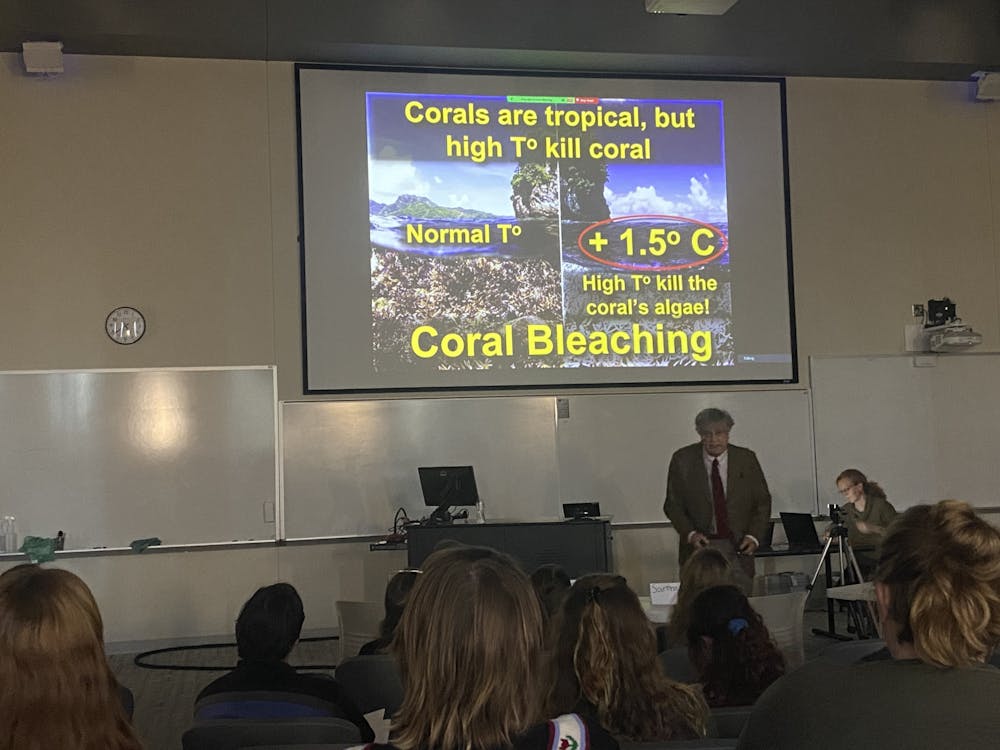James W. Porter — referred to as “superstar scientist” by the Smithsonian — discussed the power of science to create change and the urgency of protecting coral reefs at Miami University’s Hefner lecture series on Thursday, Nov. 9.
The Emmy-winning science adviser for the film “Chasing Coral” and professor of ecology at the University of Georgia has made strides in conservation through communication. Porter testified before Congress in 2019 on the connection between coral conservation and human society. Congress later signed the U.N. High Seas Treaty — establishing plans to conserve ocean biodiversity.
“We live in a connected world,” he said. “You tweak one part of that spiderweb and the whole web vibrates.”
Born and raised on a farm in Ohio, Porter recognizes how disconnected rural communities can feel from global issues.
Porter took listeners on a journey through his research in the Florida Keys, where coral was dying rapidly. He showed how peaks in coral losses corresponded with spikes of contaminated terrestrial water runoff. Much of this runoff came from the Mississippi basin — the destination of Ohio farmland runoff through the Ohio River.
Runoff from a common fertilizer called Atrazine was the culprit in much of this coral death.
Porter explained that Atrazine not only stopped photosynthesis but also released phosphorus, nitrogen and other chemicals into the water. Research showed these nutrients were allowing a human pathogen, Serratia marcescens, to survive longer in water and infect coral reefs.
Despite the weight of his lecture, he kept the audience engaged and laughing with his lighthearted reflections on his research, such as the irony of his family farm possibly killing his coral. One attendee said she stepped away with “a lot more optimism.”
Porter made efforts to communicate his findings on coral deaths to the public, interviewing with news broadcasters and connecting environmental issues with humanitarian and economic ones. The advanced wastewater treatment investments that followed his advocacy worked, and coral in the Keys saw a comeback.
He also re-enacted his Congressional testimony earlier that night which discussed the latest threat to coral: bleaching events caused by rising ocean temperatures. The speech urged global action and remained accessible through simple language, metaphors and essential background information, such as how oceans are absorbing much of the heat caused by carbon emissions.
“Oceans have acted as the world’s punching bag,” Porter said.
Both presentations were accompanied by coral images, graphs and specimens to help audiences understand how he came to his conclusions. He described new jobs in sustainability and the financial losses of coral bleaching events to students acting as economically concerned representatives.
Enjoy what you're reading?
Signup for our newsletter
“Hearing his passion was just so inspiring to me to keep going with marine science and really make an impact where I go,” said senior biology and sustainability student Katie Gabe, who played a representative in the re-enactment.
Despite new challenges facing coral reefs, Porter has faith in scientists, researchers and in young people making change.
“The future is in good hands,” Porter said, “because it is in your hands.”




